How to Apply Feng Shui Design to Restaurants
A restaurant is more than just a place to eat; it’s an experience. The atmosphere, the layout, and the décor all play an important role in creating a memorable dining experience for customers. And by applying feng shui design principles, you can enhance the overall experience in your restaurant and attract more customers. In turn, this adds profits to the business.

What is Feng Shui?
Feng shui is a traditional Chinese practice that focuses on the balance of energy in a space. A well-designed environment improves the quality of life and brings good luck. You can apply the same principles to the design of a restaurant to create a comfortable experience for customers.
Layout is Important
One of the most important things to consider when applying feng shui to a restaurant is the flow of energy. Create a clear path for customers to move around the restaurant and ensure that the layout of the restaurant is easy to navigate. Use natural elements such as plants, water, and wood to help to create a sense of balance and harmony.

Choose the Right Colors
Another important aspect of feng shui design for restaurants is the use of color. Certain colors have specific meanings and can bring out specific emotions. For example, use red, a passionate and exciting color, in areas like the bar to create a lively atmosphere. Use green, which gives a more soothing feeling of balance, in areas like the dining room to create a positively relaxing atmosphere.
Use Positive Symbols

Feng shui design also includes the use of symbols and imagery that can enhance the overall experience in the restaurant. For example, the use of imagery of food or cooking utensils can bring a sense of connection to the culinary experience. Similarly, the use of imagery of wine glasses or bottles can represent the enjoyment of the food and drink and the social aspect of the dining experience. These can also get customers to order more expensive food and drinks, driving higher margins for you.
Find the Right Feng Shui Consultant
These points are only a small part of the ancient art and science of Feng Shui. Remember, Feng Shui is all about creating balance and harmony in your space. If you’re going to hire a consultant to help you apply feng shui principles to your restaurant, I hope you’ll choose me. Regardless, it’s important for you to choose someone you are comfortable with.
I am a 3rd generation feng shui expert and have helped thousands of people add harmony and balance to their homes and offices without making it look like a Chinese restaurant exploded. Find out why I was voted the best feng shui consultant and see some of my recent projects. Get in touch with me about your restaurant today by filling out the following form:
Balancing Yin and Yang Energy for Harmony in Your Home

You’ve likely heard the term “yin-yang” and have probably seen the symbol for it several times. But, what is it really? In feng shui, yin and yang are about creating balance. These two opposing energies that work together and are present in everything. Their balance is key to creating both a calm and energetic environment. Like the old saying goes, “You can’t have day without the night.”
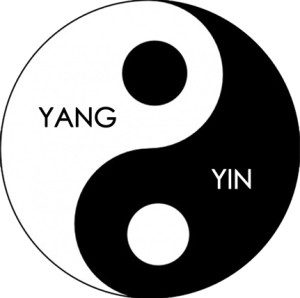
Yin Energy
Yin energy represents calm, coolness, and passivity. It is associated with the moon, the night, and feminine qualities. Spaces with yin energy are peaceful, nurturing, and restorative. Think of a cozy bedroom with soft lighting, gentle colors, and plush fabrics. Yin energy is important for areas where you plan to rest and relax, where you want to slowly recharge and be at peace.
Yang Energy
On the other hand, yang energy is active, warm, and ever-changing. It is linked to the sun, the day, and masculine attributes. Yang spaces are lively, stimulating, and exciting. Picture a bright, sunny kitchen with vibrant colors, energetic patterns, and plenty of natural light. Yang energy is important for areas where you desire activity and engagement, such as a living room, office, or a children’s playroom.
Balancing Your Home or Office
To create a balanced home or office, it’s important to integrate both yin and yang elements. Begin by identifying the primary function of each room and properly adjust the balance. For example, your bedroom should lean more towards yin to promote restful sleep, while your home office should have a stronger yang presence to enhance productivity and focus.
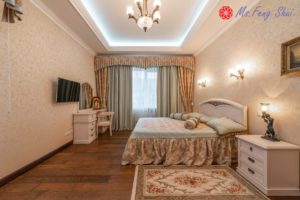
Incorporate yin elements like soft textures, muted colors, and curved lines in areas that need more calmness. Introduce yang features like bright hues, angular shapes, and lively patterns in spaces that benefit from a boost of energy. Additionally, pay attention to natural light, as it greatly influences the yin-yang balance. Use curtains, blinds, and mirrors to control and enhance the flow of light in your home.
Next Steps
Achieving harmony through the balance of yin and yang energy is an ongoing process and is only one small part of the world of feng shui. Regularly assess your spaces and make adjustments to maintain a nurturing and vibrant environment. By embracing the principles of yin and yang, you can create a home that supports your well-being and enriches your life.
I am a 3rd generation feng shui expert and have helped thousands of people add harmony and balance to their homes and offices without making it look like a Chinese restaurant exploded.
I can help you attract the life that you deserve with feng shui. Contact me today!
The Power of Color in Feng Shui: How to Use it to Enhance Your Space and Life

Color plays a crucial role in feng shui, the ancient Chinese art of creating balance and harmony in the home. Different colors represent different energies and can influence our mood, emotions, and overall well-being. Choosing the the best colors is important whether you are a home builder, resort hotel, or just looking to add color to your own home or office.
In feng shui, the use of color is an important tool for creating the desired energy and atmosphere in a space. I’ve gone over colors in a previous post, but wanted to dive into the individual colors a little more in-depth here.
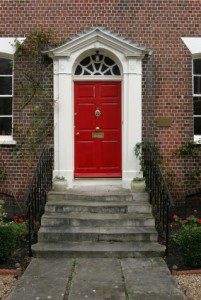
- Red: Red is a bold and powerful color that represents passion, energy, and vitality. It is often used in feng shui to bring warmth and excitement to a space. It is also believed to attract good luck and wealth, making it a popular choice for the front door. Be sure to use it in areas where you want to promote your fame & reputation. Be careful, though, because too much red can be overwhelming and create a chaotic atmosphere. It’s important to use red sparingly as an accent.
- Orange: Orange is a vibrant and cheerful color that brings joy and happiness. Orange is also believed to promote good digestion and healthy eating habits, making it a suitable choice for the kitchen.
- Yellow: Yellow is associated with creativity and is a great choice for artistic spaces or areas where you want to encourage new ideas. Yellow is also associated with learning and can be a good choice for a study or library. However, too much yellow can be overwhelming and cause feelings of anxiety, so it’s important to use it in moderation.
- Green: Green is a calming and refreshing color that represents nature and growth. It is believed to promote healing and balance, making it a suitable choice for a bedroom or relaxation area. Green is also associated with financial abundance.
- Blue: Blue is a calming and soothing color that represents tranquility and peace. It is believed to promote relaxation and clear thinking, making it a great choice for a meditation space. Blue is also associated with communication and can be a good choice for an office or study.
- Purple: Purple is a color that represents royalty & luxury, features of prosperity & wealth. In feng shui, purple is a great choice for areas where you want to attract abundance. However, too much purple can be overpowering, so it’s best used as an accent color.
- Pink: Pink is a gentle and nurturing color that represents love, marriage, and intimacy. It is often used in feng shui to create a romantic atmosphere, making it a great choice for bedrooms and spaces where you want to promote intimacy.
- Black: Black is a powerful and grounding color that represents protection and career. In feng shui, it is often used to create a sense of depth and to anchor a space. Because it is associated with the water element, black can be used to enhance the career and life path areas. However, too much black can create a heavy or oppressive atmosphere, so it’s important to balance it with lighter colors.
- Grey: Grey is a neutral and balanced color that represents stability, calmness, and sophistication. In feng shui, it is often used to create a serene and elegant atmosphere, especially to promote helpful people & travel. Grey is also associated with the metal element and can be used to enhance clarity and precision in a space. It is a versatile color that can be paired with other colors to create a harmonious environment.
- White: White is a pure and clean color that represents clarity, creativity, and new beginnings. In feng shui, it is often used to create a sense of openness and to promote a fresh start, so it is great to use in areas where children will spend their time. White is also associated with the metal element and can be used to enhance creativity. It is a versatile color that can be used in any space to create a bright and uplifting atmosphere.
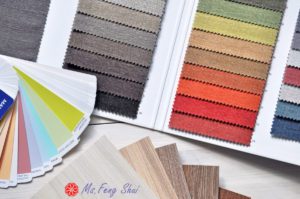
While the energy of colors can be powerful, please make sure you align them fairly well within your space by observing the feng shui bagua. For instance, if you insert a lot of blue objects in your Fame & Reputation Area, you will figuratively douse the flames of your success.
In feng shui, the use of color is an important tool for creating the desired energy and atmosphere in a space. By understanding the energies associated with different colors, you can use them to enhance the energy and overall well-being of your home or office. Remember to use color in moderation and consider the desired energy and atmosphere when choosing colors for your space.
Keep in mind that color is only part of a holistic view of the feng shui energy of your space, and should be used together with the five elements, materials, the bagua, proper lighting, etc.
If you need more specific and custom guidance to improve your space and your life, I’m available to help. Learn more on my website today and book a virtual consultation. Better feng shui can help you in profound ways on life’s journey.
I am a 3rd generation feng shui expert and have helped thousands of people add harmony and balance to their homes and offices without making it look like a Chinese restaurant exploded.
I can help you attract the life that you deserve with feng shui. Contact me today!
Hollywood Reporter: Where to Put Your Oscar? Feng Shui Experts Have (Strong) Opinions
Stay away from that bathroom! Home harmony pros dish on the best and worst places to perch an award and reveal the actor-producer whose decor is tailored for success: “No wonder she’s doing so well.”
March 8, 2024 9:30am
As Hollywood legend or, rather, a recycled talk show anecdote tells us, Kate Winslet keeps her best actress Academy Award for 2008’s The Reader in a guest bathroom. This location allows visitors some private time with Oscar — a chance to hold him, gaze in the mirror, maybe mouth the acceptance speech they’ll likely never give. But her statuette’s proximity to the toilet could be the reason Winslet has yet to win a second.
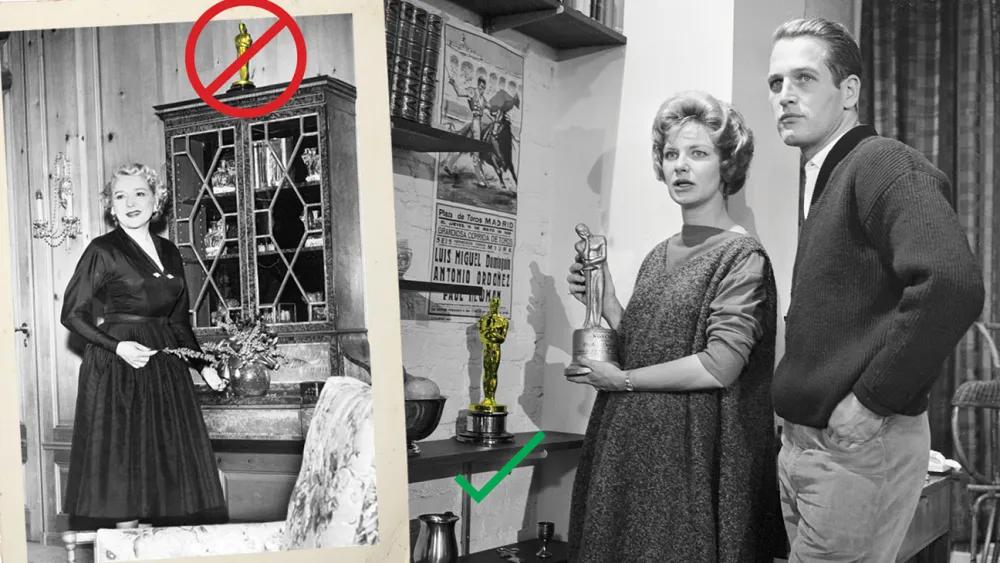
Placing any symbol of career achievement or good fortune in the bathroom is generally a feng shui no-no. “I’ve certainly been in many homes with a Grammy in the bathroom,” says Kim Colwell, a Los Angeles-based interior designer and feng shui practitioner. “I get the punk rock attitude, but, from a feng shui standpoint, that’s good energy going down the literal tubes.”
Feng shui is the ancient Chinese practice that uses energy (qi) to harmonize people with their environments. Evidence of this method goes back more than 3,500 years. And while contemporary approaches vary wildly, there is one clear throughline: The arrangement of furniture and objects in one’s space, particularly the home, has a direct impact on the energy flow in that person’s life. This means that where an Oscar winner chooses to display their trophy is not merely an aesthetic decision — it could potentially sway their career toward fortune or frustration.
According to feng shui experts, ideal perches for any award are the office and living room, never isolated and instead surrounded by other accolades, decorative items and personal mementos. “You want to think about it as an object, its tones and scale,” says Colwell. “An Oscar is gold, so what would you do with a gold vase? Let it enhance the decor so it can be discovered and not just stand out.”
Ill-advised spots include anywhere in the primary bedroom (Melissa Leo), a place where no reference to work belongs; the kitchen (Jared Leto), where the environs tend to be chaotic; and a hallway, in which any object is likely to be ignored or otherwise disrespected. But the biggest misstep of all, and Geena Davis is guilty of this, is positioning an Oscar on that all-time classic pedestal: “There’s a lot of symbolism attached to the mantel above a fireplace,” says Cliff Tan, TikTok’s leading authority on feng shui with 2.9 million followers. The London architect, who released the book Feng Shui Modern in 2022, cautions that nothing of personal value belongs so close to a hearth: “Whether the fire is going or not, it’s burning away the award. And it’s too prominent. You’re telling others that the award is your whole life.”
Among the most important variables in feng shui is an object’s standing in the overall footprint of the home, and one of the most common methods of keeping attuned to that is by using a bagua map. It’s a grid aligned with the points of the compass and broken into nine squares that denote different aspects of one’s life — wealth, reputation and fame, love, family, health, creativity and children, knowledge, career and travel. Some practitioners overlay the bagua onto the blueprint of an entire home, the top row justified with the southern side of the building, while others employ it room by room. So, if an Oscar means “fame and reputation” for its owner, it should be situated south and centered in a home or room. If it speaks more to career, the Oscar belongs north and centered. And should it be a creative motivator, the western-most wall might make more sense.
But what if an Oscar inspires complicated feelings?
Gwyneth Paltrow, who recently joked on Instagram that she uses hers as a doorstop at her Amagansett house, years ago said that her best actress trophy for 1998’s Shakespeare in Love reminded her of a tough time, and she kept it mostly out of sight. “An award should be a symbol of empowerment, but if it’s attached to a project or a time that caused trauma, put it somewhere you don’t often go,” says Colwell, “like a guest room or even in a beautiful box. So long as you know it’s there for the day when it will hopefully have less connection to pain.”
Celebrities, Oscar winners or not, are an accidental touchstone for many feng shui aficionados. The combination of Architectural Digest spreads and social media presence means that glimpses into their homes are often quite easy to come by — and some experts don’t like what they see. “I’ll watch those videos where movie stars walk through their homes, and I’m usually just screaming … they’re so bad,” says Jessie Kim, a third-generation certified feng shui consultant and real estate investor who operates across Southern California as Ms. Feng Shui. “But not Reese Witherspoon. When I saw her home, everything made sense. The layout is brilliant. No wonder she’s doing so well.”
Witherspoon’s Oscar is said to have migrated around her various homes and rooms over the years, and experts say that works, too. Like any object, an Oscar’s relationship with the person who won it is bound to change. And, if it feels right, even a little time in the bathroom probably won’t derail any careers.
“With perfect shui, you wouldn’t even have indoor plumbing,” says Kim, noting how so much of modern living defies the original practice. “So if Kate Winslet wants to keep her Oscar in the bathroom, and it lets people have fun, I think it’s a clever way of keeping the energy in that room up — instead of sending it down the drain.”
This story first appeared in the March 6 issue of The Hollywood Reporter magazine. Click here to subscribe.
Love Feng Shui: 5 Tips For Happy Marriages
Feng shui is an ancient Chinese practice that involves the arrangement and balance of energies in a space to create a sense of harmony and well-being. You can use it to enhance the energy in a home or office. Feng shui can also be applied to your relationships, including your marriage.

5 Feng Shui Tips for a Happy and Harmonious Marriage
- Choose the right bedroom colors. The colors in your bedroom can have a significant impact on the energy and mood of the space. Add soft, calming colors like blue and green to promote relaxation and tranquility. Bold, vibrant colors like red and yellow can create a more energetic and passionate atmosphere. Choose colors that resonate with both partners while also keeping the feng shui bagua in mind.
- Keep the bed clutter-free. A cluttered bed can create a feeling of chaos, which can be bad for a happy marriage. Keep the bed free of clutter and only use it for sleep and intimacy. Doing so will help promote a sense of calm and connection.
- Enhance the energy of the Love & Marriage Corner. In feng shui, the back-right corner of a home or room represents the energy of love and marriage. Consider adding red or pink accents to stimulate passion and love. Ensure your pillows, bedside tables, towels, and similar decorative items are evenly paired off between you both to symbolize a balanced partnership.
- Practice good feng shui habits. In addition to adding feng shui elements into your home, it’s important to practice good feng shui habits as a couple. This includes maintaining a clean and organized space, being mindful of the energy you bring into the home, and regularly expressing appreciation and gratitude towards one another.
- Practice safe sleep. Eliminate as much electrical energy as possible in your bedroom. For example, don’t have a television in your bedroom, charge a phone on your bedside table, or use bright lighting. Good exceptions are soft lighting and a white noise sound machine. While you’re at it, eliminate as much light as possible while you sleep by using blackout curtains.

Next Steps
Incorporating these feng shui tips into your home and daily routine is only part of the equation to creating a strong and harmonious foundation for your marriage. Remember, feng shui is about finding balance and harmony in your space and relationships, and it’s a practice that requires patience, mindfulness, and effort. With time and practice, you can create a happy and harmonious marriage with the help of feng shui.
I am a 3rd generation feng shui expert and have helped thousands of people add harmony and balance to their homes and offices without making it look like a Chinese restaurant exploded.
I can help you attract the life that you deserve with feng shui. Contact me today!
Is it bad Feng Shui to have a home near power lines?
Short answer: YES!

You’ve heard the buzzing sound by standing below a power line. You may have even felt a tingle go down your back or some of your hair stand on end by getting too close. It’s almost like the energy is flowing through you. That’s NOT a good thing.
In feng shui, the energy around you can have a big impact on your well-being and success. One factor to consider when choosing a home or office location is how close it is to power lines. While power lines are a necessary part of modern life, they can potentially disrupt the flow of positive energy and create negative feng shui for you. Here’s why you should avoid placing your home or office near power lines:
- Health Concerns: Power lines emit electromagnetic fields (EMFs) that can potentially affect your health. EMFs are invisible fields of energy that are produced by electrical devices and power lines. Some studies have suggested that exposure to high levels of EMFs can have negative health effects, including headaches, insomnia, fatigue, and increased risk of cancer. While the evidence is not conclusive, it’s probably a good idea to avoid placing your home or office in close proximity to power lines to minimize your exposure to EMFs.
- Energy Disruption: Power lines can disrupt the natural flow of qi (energy) in your space. In feng shui, a smooth and balanced flow of energy is essential for maintaining harmony and well-being. The presence of power lines can create negative energy, leading to feelings of unease and discomfort. By choosing a location away from power lines, you can ensure a more harmonious and balanced environment.
- Impact on Wealth and Prosperity: Power lines can also affect your work focus and productivity, which in turn can impact your wealth and prosperity. The disruptive energy from power lines can create distractions and reduce your ability to concentrate on important tasks. This can lead to decreased work performance and missed opportunities for financial growth. By avoiding power lines, you can create a more focused and productive workspace, ultimately enhancing your potential for wealth and prosperity.
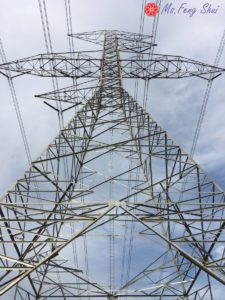
While it may not be possible to completely avoid power lines and other sources of EMF, it’s still a good idea to try to minimize your exposure to them as much as possible. If you’re choosing a home or office location, consider the proximity to power lines and try to select a space that is farther away from them. By doing so, you can help create a positive and harmonious environment that supports your well-being and success.
If you already live near power lines or have other sources of EMF, be sure to get some tips in my other blog post about EMFs. Learn about EMF readers, for instance.
Power lines are one of so many factors in making sure your space has great feng shui. If you need more specific and custom guidance to improve your space and your life, I’m available to help. Learn more on my website today and book a virtual consultation. Better feng shui can help you in profound ways on life’s journey.
I am a 3rd generation feng shui expert and have helped thousands of people add harmony and balance to their homes and offices without making it look like a Chinese restaurant exploded.
I can help you attract the life that you deserve with feng shui. Contact me today!

